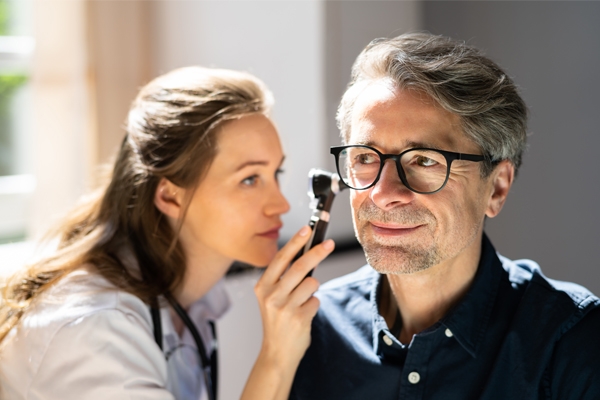How Loud is Too Loud?
Learn about decibel levels and discover how to protect your hearing in a world where volume levels keep rising.
Navigating the Noise – When Loud Sounds Become Harmful
When experiencing the noisy hustle of everyday life, it's crucial to ask – how loud is too loud for our ears? Understanding the human hearing range equips us to protect one of our most vital senses. As a global leader and trusted name in hearing healthcare, AudioNova provides insights into managing decibel levels effectively. This guide sheds light on recognizing safe volume thresholds and ensuring your ears remain healthy in a world where loud sounds are always around the corner.

How is Volume Measured?
In the context of sound, volume refers to the noise level we hear. This intensity is quantified using a unit known as decibels (dB). Essentially, when we talk about measuring volume, we're gauging how much energy the sound waves carry. These sound waves create air pressure oscillations that gently nudge our eardrums. The more forceful these oscillations, the louder the sound appears to us. Decibels provide a scale to capture this dynamic, helping us distinguish between a whisper and a roar. To measure the decibels your ears detect, take our free online hearing test.
Online Hearing TestThe Human Hearing Range
An average human ear can detect sounds as low as 0 decibels, which represents the threshold of hearing. Normal conversation levels hover around 50 decibels, comfortable and harmless to our ears. When sound exceeds 100 decibels, it enters the discomfort zone, potentially harming our hearing health. Painful sound levels are reached at 120dB and beyond. Interestingly, even a 10-decibel increase can double the sound intensity and make sounds feel twice as loud, demonstrating just how sensitive and nuanced the human hearing range truly is.

Hearing Protection Tips
Safeguarding your ears from loud noises is straightforward with the right practices. Use the lowest volume setting when using headphones for music. Keep a safe distance from the source of loud sounds whenever you can. In situations where noise is unexpectedly high, covering your ears can provide immediate relief. Invest in earplugs which are invaluable for protecting yourself during prolonged exposure, like at live concerts or construction sites. Routine hearing assessments can catch and address hearing impairments early to ensure long-term auditory health. You can find a variety of hearing protection products in our online shop.
Shop Hearing ProtectionWho's at Risk for Hearing Damage?
Certain individuals face a higher risk for noise-induced hearing loss, particularly those whose occupations expose them to consistent loud environments. Workers using power drills, operating chainsaws, near aircraft, or involved in the music industry encounter permanent noise levels that can precipitate hearing damage.
It's advisable for those in noisy professions to undergo hearing evaluations annually. You should also get your hearing checked if you notice any immediate changes in your hearing capability to mitigate the issue and safeguard your hearing health.
CONSTRUCTION WORKERS
FARMERS
FACTORY WORKERS
AIRLINE STAFF
PROFESSIONAL MUSICIANS
Your Path to Better Hearing
At AudioNova, our commitment to revolutionizing hearing health runs deep. By combining unparalleled audiological care with state-of-the-art hearing aid technology, we address every type and severity of hearing loss. Our solutions are designed for real life, ensuring clarity, comfort, and connectivity. From the initial assessment to ongoing support, our approach empowers you to enjoy a life without limitations. Experience the freedom of superior sound quality and the confidence that comes with knowing your hearing health is in expert hands.




